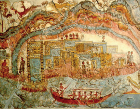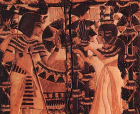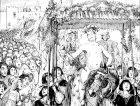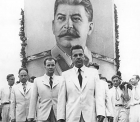Society
How people group together, organise their rules and systems are all part of what create a society. In this section articles examine the nature of society how it interacts with other themes of culture, power, etc. and how societies have developed and changed over time. The structures of the ancient world are explored as are the complex feudal systems and the varied societies of Empire and modernity.
Sort by:
Date (Newest first) | Title A-Z
Show:
All |
Articles |
Podcasts |
Multipage Articles
-

The cultural biography of opium in China
ArticleClick to view -

The emergence of the first civilisations
ArticleClick to view -

The great British postwar exodus
ArticleClick to view -

The last battle: Bomber Command’s veterans and the fight for remembrance
ArticleClick to view -

The many queens of Ancient Egypt
ArticleClick to view -

The right to fight: women’s boxing in Britain
ArticleClick to view -

The ripple effect: reaching new readers
ArticleClick to view -

The throne and the fairy tellers
ArticleClick to view -

The ‘workless workers’ and the Waterbury watch
ArticleClick to view -

Tourism: the birth and death of the little Welsh town?
ArticleClick to view -

Volunteers to a man: an industrial workplace goes to war
ArticleClick to view -

We will remember them: well, most of them
ArticleClick to view -

What Have Historians Been Arguing About... the consequences of the industrial revolution
ArticleClick to view -

What did it mean to be a city in early modern Germany?
ArticleClick to view -

What difference has the opening (and closing) of archives after 1991 made to the historiography of the Cold War?
ArticleClick to view -

What is interesting about the interwar period?
ArticleClick to view -

When was the post-war?
ArticleClick to view -

Who only history know? Cricket, society, and the historical oversight of sport
ArticleClick to view -

Willington and the Mowbrays: After the Peasants’ Revolt
ArticleClick to view -

Women and the French Revolution: the start of the modern feminist movement
ArticleClick to view

